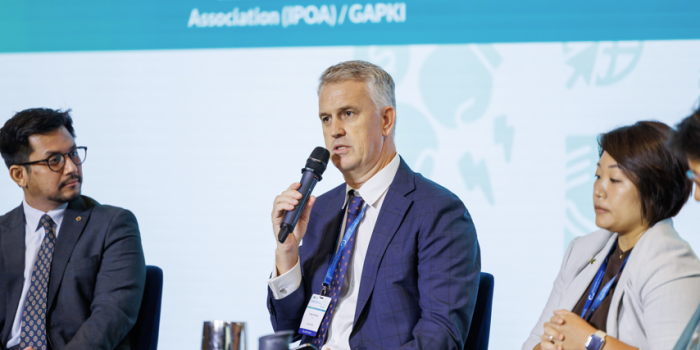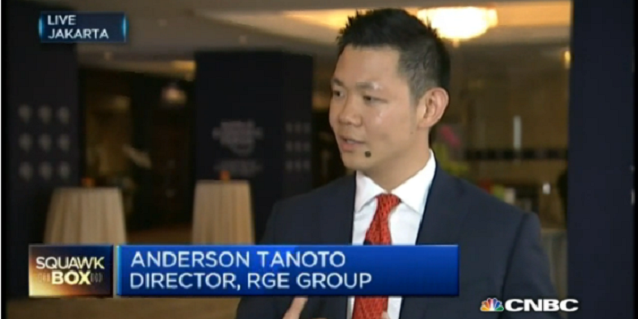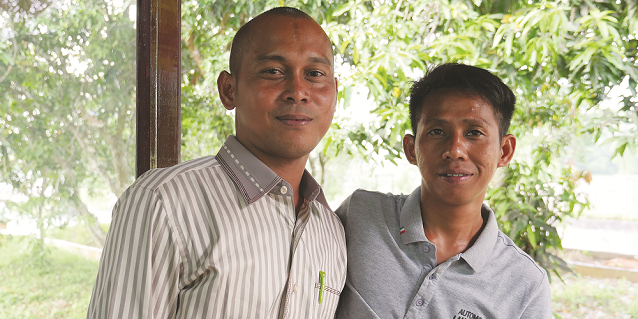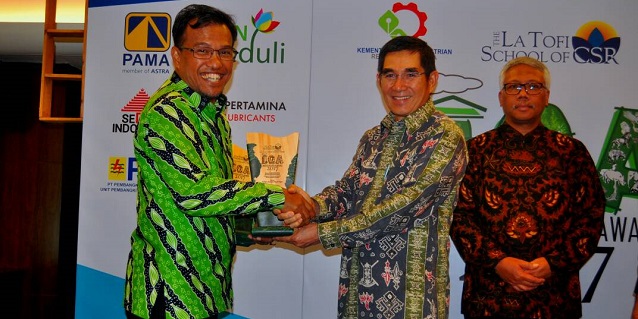At a recent panel hosted by the Singapore Institute of International Affairs (SIIA), Craig Tribolet, Deputy Director of Sustainability at APRIL, addressed a challenge many resource-based industries in ASEAN are facing: how to balance sustainability with business growth.
He acknowledged the external pressures – from regulatory shifts to evolving consumer expectations – but made one thing clear: for APRIL, growth and sustainability are not competing priorities. They are fundamentally linked.
“Our ambitious growth targets and our sustainability commitments are aligned to our core business function. We see these as fundamentally linked, and it’s our position that a resilient business is, by definition, a sustainable business,” said Craig.
Resilience through Integration
The external pressures facing pulp and paper players are significant; from tightening regulation – particularly around the EU Deforestation Regulation (EUDR) – to increasing scrutiny across the supply chain and shifting consumer expectations.
Having rolled out its Sustainable Forest Management Policy 2.0 commitments in 2015 and launched its APRIL2030 targets five years ago, APRIL has continuously sought to refine and upgrade its sustainability strategy to meet these expectations.
Global forest certification bodies such as the Programme for the Endorsement of Forest Certification (PEFC) have played an important supporting role. Certification provides customers and other stakeholders with the confidence that the practices of pulp, paper and board producers are aligned with global best practices.
Amid continuing market uncertainty, APRIL remains committed to avoiding backsliding. Sustainability goals must be treated as value-generating business functions, not discretionary initiatives vulnerable to cost-cutting. The company views business resilience and long-term profitability as fundamentally linked to its ability to integrate environmental and social priorities into commercial decision-making.
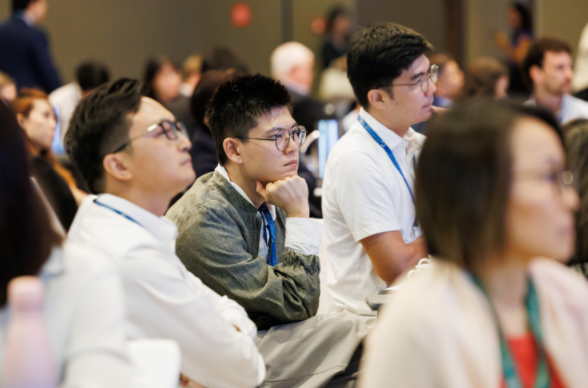
The Singapore Institute of International Affairs discusses the future of production in ASEAN.
Embedding Sustainability and Elevating Productivity
Craig spoke about how sustainability is embedded directly into APRIL’s commercial decision-making. Through its internal pricing mechanism – a US$1-per-tonne levy on every load of wood that crosses its weighbridge – the company channels dedicated funding into conservation and restoration programmes. Since it was launched in 2020, this mechanism has contributed over US$60 million, including US$16 million in 2023 and US$14.8 million in 2024.
“Through our US$1-per-tonne internal levy, we ensure that sustainability spending is not treated as discretionary. “It is embedded as a core part of business and decision making.”
APRIL’s sustainable growth model is built not on land expansion, but on improving yields within its existing footprint. With over 600,000 hectares of plantation and 465,000 hectares of conservation area, the company is investing in science-led intensification, supported by a team of more than 250 in-house scientists.
“We’ve got over 270 scientists working for us whose core job is R&D. It’s about driving more productivity in a sustainable and environmentally sensitive way from that same land footprint,” said Craig.
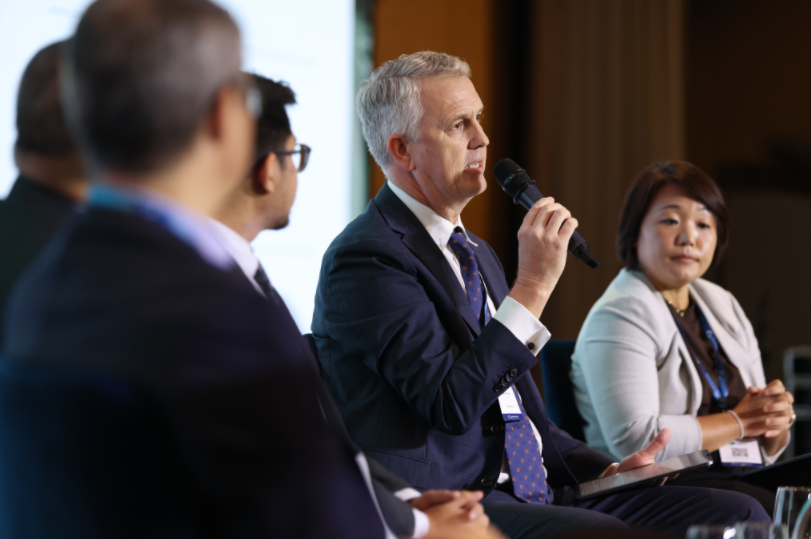
Craig speaks about the balance of sustaining sustainability without losing sight of productivity.
Shifting from Volume to Value
APRIL is also shifting its commercial focus. Once largely a commodity supplier operating in traditional B2B markets, the company is now pivoting toward higher-value, consumer-facing segments such as viscose fibre and board packaging, including food-grade applications that demand elevated quality standards and regulatory compliance.
“We’re talking now in entirely different marketplaces, from pulp and paper to the fashion industry. Similarly, we’re making a pivot from pulp and paper to board, particularly food packaging, which requires us to meet very high-quality standards.”
This transition has taken APRIL into entirely new downstream industries, including the fashion and packaging sectors, where expectations around traceability, sustainability, and product integrity are significantly different from traditional pulp and paper markets. Board packaging, while more familiar to the business, brings its own complexities – particularly in applications requiring strict food safety standards.
More broadly, this shift mirrors an industry-wide move away from volume-based commodity models toward diversified, brand-aligned value chains. Though not without operational and cultural challenges, it positions APRIL for longer-term relevance in a changing global market.
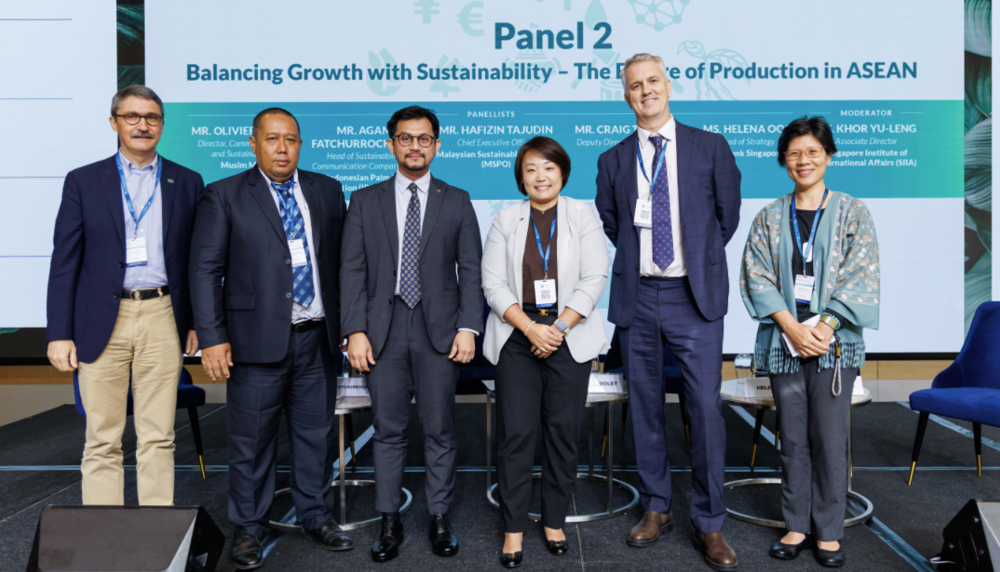
Craig was joined on the panel by Oliver Tichit, Director of Communications and Sustainability at Musim Mas, Agam Fatchurrochman, Head of Sustainability Communication at Indonesia Palm Oil Association, Hafizin Tajudin, CEO of Malaysia Sustainable Palm Oil, and Helena Ooi, Head of Strategy at Maybank Singapore.
Smarter, More Agile, Long-Term Focused
While the economic landscape remains challenging, APRIL sees this as a moment of opportunity; a chance to align innovation, agility, and long-term value with responsible forestry practices.
Rather than pull back, APRIL continues to integrate environmental responsibility into its business strategy, not only to future-proof its operations, but to create tangible business value through smarter systems, streamlined processes, and greater responsiveness to change.
“There’s no getting away from the fact that market conditions are tough. But it’s also an opportunity for us to be smarter, more agile, and to use sustainability to drive innovation and cost savings throughout our business,” said Craig.



